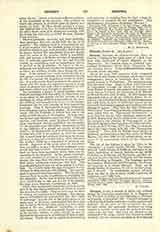

Crisium, DIOCESE of (Grco-Slavonic Rite), in Croatia.—Crisium is the Latin name of a little town some miles northeast of Agram (Zagreb), on the Glagovnitza. Its Croatian name is Kriievac (pronounced Krizhevatz); Slavic, Kriz; Hungarian, Koros; German, Kreuz. It has 4,000 inhabitants; trade of cattle, wood, and wine.
About the year 1600 numerous Serbs emigrated from Servia and Bosnia to Croatia, where they found coreligionists, known to historians since the fourteenth century as Wallachians. The emigrants soon took the same name. Some of them were converted to Catholicism through the efforts of Dimitrovich, Latin Bishop of Agram, who granted their leader, the monk Simeon Vratania, the monastery of St. Michael on Mount Marzha, near Ivanitz. In 1611 Simeon was appointed bishop of all the Catholic Serbs; he remained a staunch friend of Rome, as did his successors and their flock, in spite of defections caused by the schismatic Servian propaganda and conflicts with the Bishops of Agram. They bore the title “Episcopus Plataecensis” from Plata in Bceotia, while the government called their see “Episcopatus Svidnicensis”, a name that has not yet been explained satisfactorily. In 1671 Bishop Paul Zorcic accepted for himself and his successors the position of vicar-general of the Bishop of Agram for the Catholics of the Slavonic Rite. It was not until June 16, 1777, that Pius VI reestablished the Uniat diocese with the title “Episcopatus Crisiensis”. Since then its bishops have resided at Kriievac; as stated above, they first resided at Mount Marzha, but after 1690 had no settled abode, on account of the persecutions caused by the schismatic Serbs.
The list of the bishops is given by Nilles in his “Symbol”, p. lxxxiii (index), 765-69. The Graeco-Slavonic Uniat Diocese of Kriievac, suffragan of the Latin Archbishop of Agram, includes today 20,700 Catholics, in 23 Servian and Ruthenian parishes situated in Croatia, Slavonia, Dalmatia, and the county of Bacs-Bodrog in Hungary. The languages spoken are Croatian, Ruthenian, and Hungarian; the liturgical language is of course Slavonic. There are 28 secular priests, 30 churches, 22 with a resident priest, and 2 chapels. The schismatics number 225,000; there are also in this territory 17,000 Calvinists, 47 Lutherans, and 7,000 Jews.
S. VAILHE

